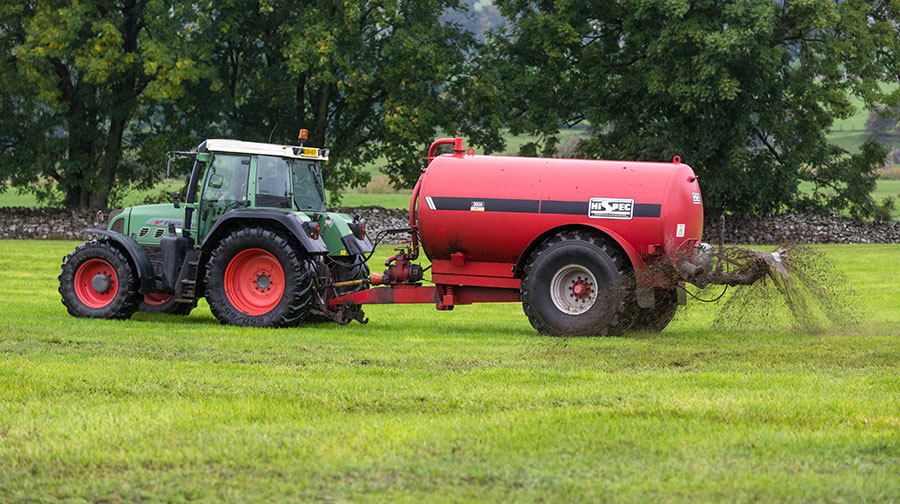Welsh government announces changes to NVZ rules
 © Tim Scrivener
© Tim Scrivener Farm leaders in Wales have welcomed a package of changes to nitrate vulnerable zone (NVZ) regulations that include a three-month delay to the implementation of an annual holding nitrogen limit.
The Water Resources (Control of Agricultural Pollution) (Wales) Regulations began a staged introduction in April 2021.
Part of that would have seen a 170kg/ha nitrogen limit imposed on farms in Wales from 1 January 2023. But this measure was expected to cause widespread economic uncertainty on farms and the prospect of destocking to comply.
However, the Welsh government has announced changes after a long-running battle with Welsh farming unions.
These changes include:
- A delay to the 170kg/ha annual holding nitrogen limit from 1 January to 1 April 2023
- A Welsh government commitment to carry out an assessment of the economic and environmental impact of the 170kg/ha nitrogen limit
- A further pledge to explore alternative technological solutions
- A commitment to a consultation on a scheme to run until 2025, allowing farm businesses to apply for a licence for a higher annual holding nitrogen limit of 250kg/ha
See also: Conservatives haemorrhaging rural support, says YouGov
NFU Cymru president Aled Jones welcomed the changes which “provided additional breathing space for farmers” who otherwise faced destocking their herds to comply with the rules.
NFU Cymru also commended an extra £20m funding, made available as part of the announcement.
“It is crucial that this funding is used to support capital investment in infrastructure on farm, given that the government’s own impact assessment highlighted a £360m upfront cost to comply with the regulations,” Mr Jones said.
Consultation
The licensing component, which will be consulted on by government this autumn, will give all interested parties more time to find a fit-for-purpose, evidence-based solution. This could deliver better water quality, alongside a thriving Welsh agricultural sector, Mr Jones added.
The union president referred to the long-running battle for change and thanked Plaid Cymru policymakers who had stepped in to help press farming’s case.
With the political party’s help, the union had managed to get the government to listen to its plea that the rules threatened the viability of farming and the wider supply chain, Mr Jones said.
In response, Plaid Cymru’s rural affairs spokesman, Mabon ap Gwynfor, said: “Plaid Cymru has consistently argued for a more proportionate approach that works for farmers and for better financial help to support changes.
“The announcement will directly address these points and provide greater security to farmers and the agricultural community at a time of great uncertainty. It offers a way forward that can work for all.”
Mr ap Gwynfor urged farmers to take part in the consultation on the rules.
“Plaid Cymru now encourages all farmers to participate in the consultation to ensure the voice of rural and agricultural Wales is heard loud and clear,” he said.
